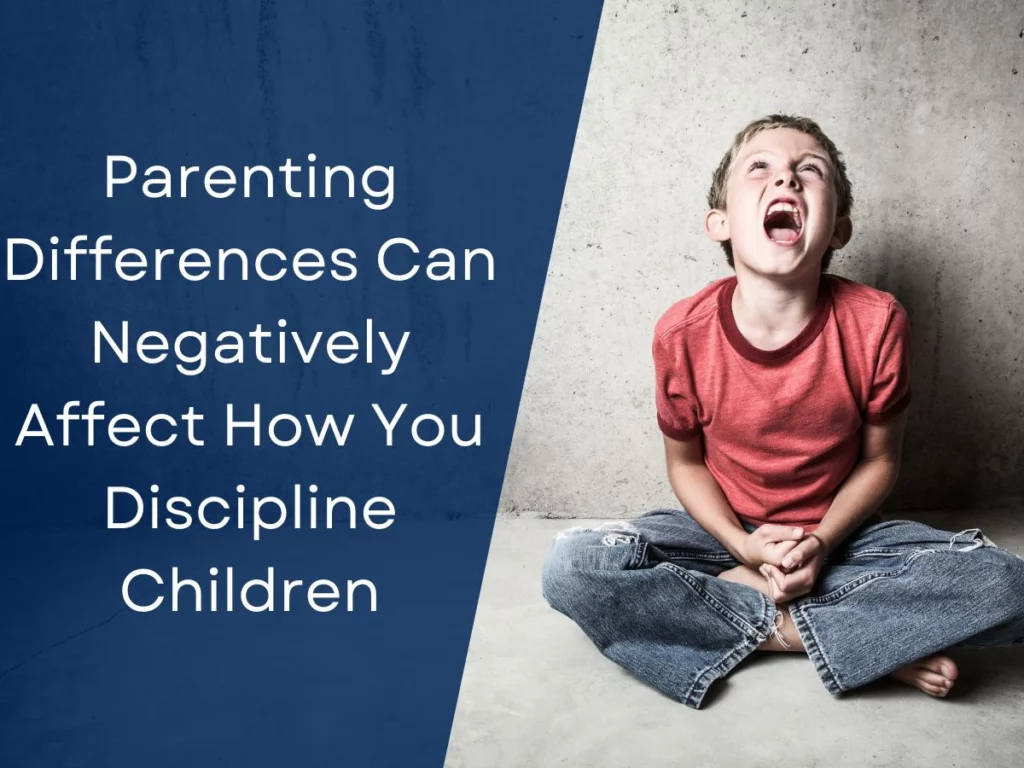Overcoming parenting differences in a blended family can be challenging, but it is not impossible.
Oftentimes, when two adults come together to raise children, they do not clarify which parenting style they will use. This can cause confusion, arguments, and improper child rearing. Parents must always show a united front to their children, or the child will take advantage of the gaps.
For example, they will always ask one parent for certain things because they are sure to get it.
Remember, children can be manipulative. They are observant and learn the bad things quickly.

Understanding Parenting Styles
By and large, your parenting style will fall into any of these four types.
- Authoritarian
- Authoritative
- Permissive
- Uninvolved
Authoritarian Parenting
This strict parent leads with rules. They do not consider their child’s feelings and the child is usually shy, has low self-esteem, and has trouble sharing their opinions.
Obedience is the important component to how they parent. They do not take time to explain the “why” to their kids, and so the children become poor problem-solvers.
Authoritative Parenting
This is a more positive approach to parenting. An authoritative parent considers the child’s feelings even before they execute punishment. They clarify why a child must follow rules but also provide constructive methods to foster a balance.
They use praise and reward systems, which help their children become happy and successful.
These children usually do not have problems with their behavior or schoolwork.
Permissive Parenting
A permissive parent allows their child to get away with bad deeds, without sufficient (or any) consequence. Their children usually plead a punishment and will simply continue disrespecting others. They ignore rules and suffer from academic setbacks.
They tend to jump in more forcefully when the child does something serious. A permissive parent is also more concerned about being a friend to their child, rather than a disciplinarian.
Uninvolved Parenting
This is a “hands off” kind of parenting. The children are left to raise themselves. Such parents are busy with their own lives, their own problems, and simply provide the basic necessities for their children. You will find this depicted in divorced families, drug abusers, or parents with mental problems.
They can never tell you what their children are doing, who their friends are, or give any detail about their academic performance.
Children reared in these kinds of families have poor self-esteem, behavioral problems, and perform poorly in school as well.
Overcoming Different Parenting Styles
Many blended families disagree on how to raise and discipline children.
Couples will have this challenge because they’ve used their approach for years or it is what they are accustomed to from their parents.
A permissive parent will think an authoritarian spouse is too strict. And an authoritative parent will think an uninvolved parent is too callous, disinterested, or unfeeling.
Deciding on how to discipline a child as a couple is very important.
To help you understand and decide on what types of parents you will be to your children, there are a few strategies that will help.
Sit Down and Talk
Sometimes, child rearing is just not on the “getting to know you” list when you meet your spouse.
But it is never too late to discuss it and keep on talking about it until you reach a consensus.
This conversation will consider such factors as bedtime, diet and nutrition, schooling, allowances, discipline, and everything else that have to do with raising your children.
Develop Rules Together
You cannot create vague rules. Your child will find loopholes, just as how you would with trying to get out of something you don’t want to do. And they will first start with pitting you against each other, starting with the weakest link.
You want to be clear on what you each mean and eradicate every instance of ambiguity. Clearly write out the rules and guidelines. If something unforeseen pops up, talk about it while your child is taking a time out. You can even show these written rules to your children so that they understand where you both are in terms of discipline.
Sometimes, some rules will need to be revised. Be open to discussing these changes with your spouse.
This is a great approach for blended families.
Have Each Other’s Backs
Remember, your children are like evil masterminds when it comes to your weaknesses. They can detect if you are not supportive of each other. So back each other up every time.
Then if necessary, come back to the children when you have first clarified the rules and regulations with each other. Remember, most importantly, NEVER fight in front of the kids.
You Can Overcome Parenting Differences
Unity is strength.
This is a popular saying and if you adopt it with your spouse, you will find that your parenting experience will be much better. Be flexible to changes. Listen to each other and adjust your parenting style to suit your children. This might mean parenting one a little differently than the other.
But most importantly, be patient with one another. It is not easy blending two families into one. It takes time and understanding.
